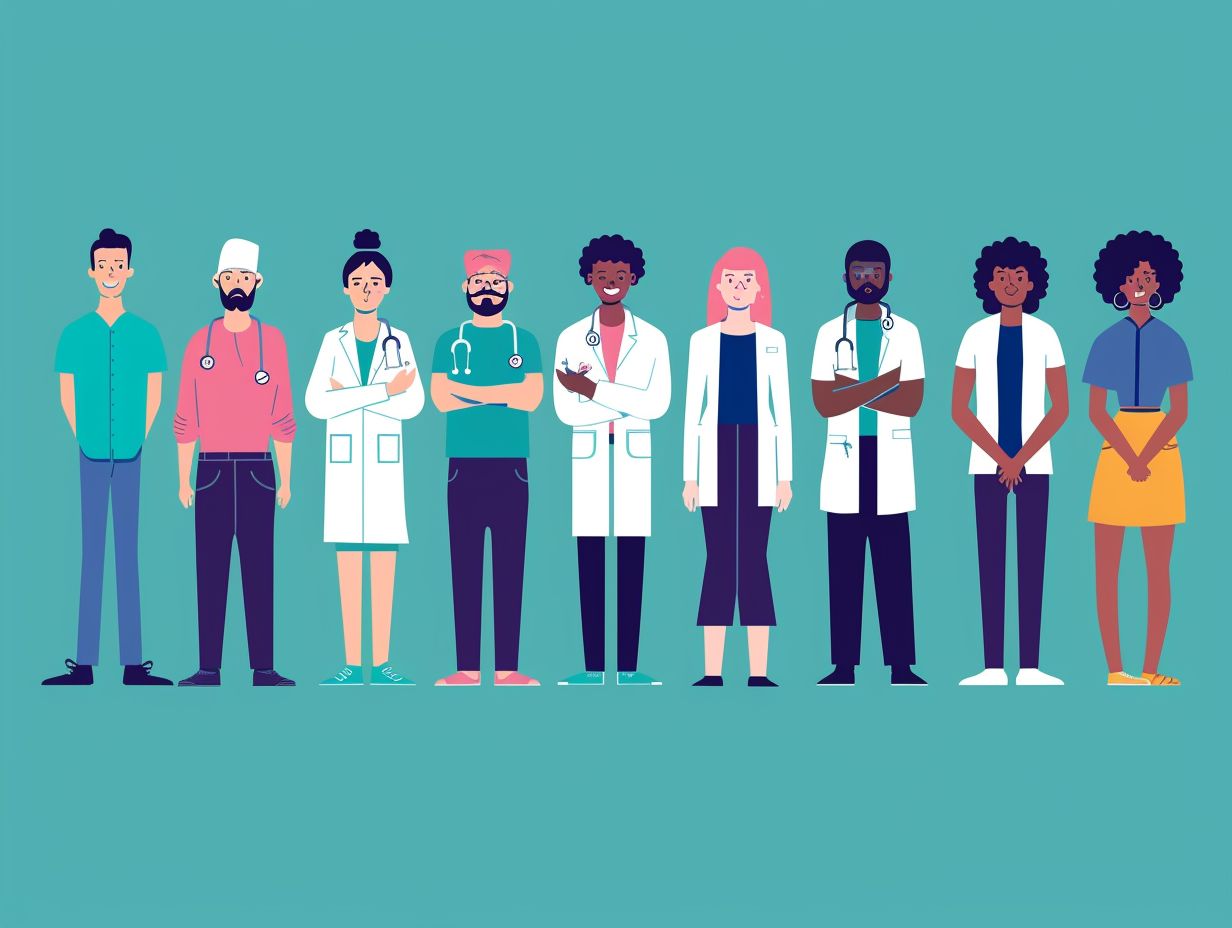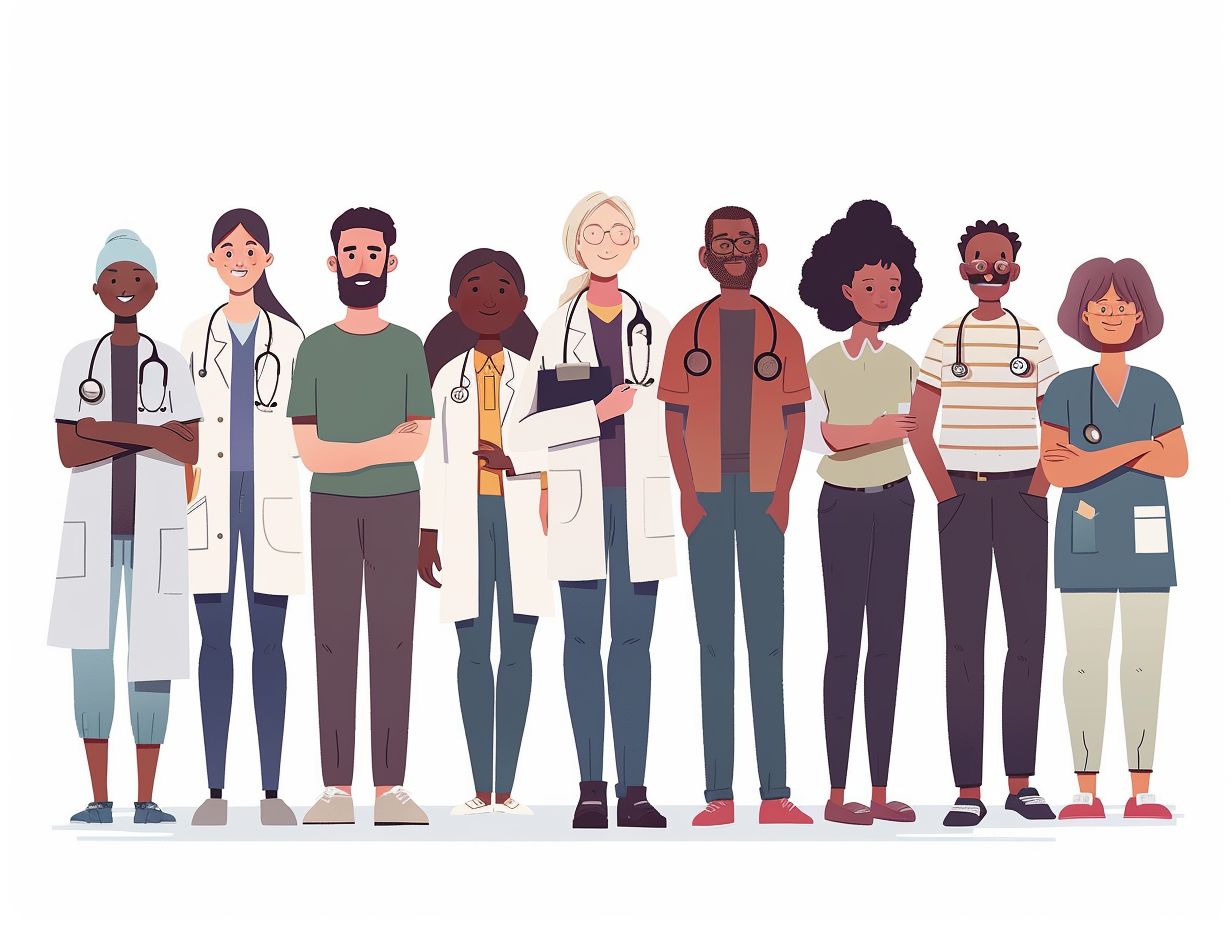You face a unique set of health challenges as an immigrant that might not always get the attention they deserve.
Let’s delve into some of the most common health issues that immigrants encounter. We’ll take a look at the typical health conditions they face and the hurdles they might come up against when trying to access healthcare.
We’ll talk about ways to tackle these health issues specific to immigrants and how to enhance their access to care. It’s crucial to support the health of immigrant communities through resources and programs in the community.
Join us as we explore the realm of immigrant health and figure out how we can ensure their well-being.
Defining Immigrant Health and its Challenges

Your health as an immigrant covers a wide range of concerns and common health issues that you may face, along with some unique challenges that are particularly prevalent in the realm of refugee health.
These challenges often arise from things like language barriers, difficulty accessing healthcare services, and the emotional toll of forced migration. On top of that, migrants and refugees may also grapple with mental health issues such as post-traumatic stress disorder (PTSD) and depression due to their past experiences and the uncertainties that come with resettlement. When you add in cultural differences in health practices, unfamiliarity with the healthcare system in your new country, and economic obstacles, the health disparities faced by this vulnerable group can become even more complex.
For healthcare providers, it’s crucial to be culturally sensitive and knowledgeable about the specific needs and challenges within immigrant communities. This understanding is essential for delivering effective care that meets the diverse health needs of this population.
Most Common Health Issues Among Immigrants
For immigrants like you, the usual health concerns often revolve around chronic conditions, infectious diseases, and the importance of keeping up with regular health screenings to catch any hidden health issues.
Overview of Common Health Conditions
Common health conditions among immigrants often include chronic conditions such as diabetes and hypertension, as well as infectious diseases like tuberculosis, alongside maternal and children’s health concerns.
If you’re an immigrant, you might come across these health issues that can throw some hurdles your way. Things like diabetes, hypertension, and even tuberculosis could be on your plate, not to mention issues related to maternal and children’s health. Chronic conditions like diabetes and hypertension need constant attention, while infectious diseases like tuberculosis may call for specialized treatment. For immigrant women, maternal health concerns often revolve around getting access to prenatal care and dealing with language barriers. And when it comes to children’s health, factors like vaccination status, nutrition, and exposure to environmental risks during resettlement can all play a role.
Barriers to Healthcare for Immigrants
You might find yourself up against some tough challenges when it comes to healthcare as an immigrant. Cultural differences, language barriers, and various healthcare disparities can make it tricky for you to navigate and fully integrate into the healthcare system.
Social, Cultural, and Economic Factors

In your case, your health as an immigrant is really impacted by a mix of social, cultural, and economic factors. Things like the social determinants of health, cultural competency, language interpretation services, and your levels of health literacy and socioeconomic status all come into play.
These factors show how closely tied health outcomes are to the bigger picture of your social surroundings. As an immigrant, you might find it tough to get top-notch healthcare because of issues like language barriers and not knowing what services are out there. Plus, differences in how much money you have can decide if you can even afford to get healthcare. And don’t forget about health literacy – how well you understand and move through the healthcare system can really make or break your overall health as an immigrant.
Addressing Immigrant Health Issues
When tackling immigrant health issues, you need to take a well-rounded approach. This means diving into health education, getting involved in public health initiatives, coming up with preventive care strategies, pushing for strong healthcare policies, and encouraging more use of health services.
Strategies for Improving Access and Care
Improving access and care for immigrants involves strategies that focus on enhancing healthcare access, promoting health, ensuring quality of care, and improving overall health outcomes through comprehensive healthcare services.
One key strategy for you is to create culturally sensitive healthcare services tailored to your unique needs as an immigrant. By offering multilingual staff, interpreters, and culturally competent care, healthcare providers can bridge communication gaps and foster trust with you and other immigrant communities.
Outreach programs that raise awareness about available healthcare resources and preventive services play a vital role in promoting health among immigrants like you. Quality of care can be enhanced through training programs for healthcare professionals to better understand your cultural perspectives and practices, ultimately leading to improved health outcomes for you and other immigrant patients.
Supporting the Health of Immigrant Communities
To support the health of immigrant communities, you need strong community resources, effective social support systems, targeted health education, and continuous health promotion efforts to boost everyone’s well-being.
Community Resources and Programs

Community resources and programs are a vital part of providing essential healthcare services, facilitating healthcare programs, offering social support, and helping with effective health management for immigrant populations.
These resources and programs are specifically tailored to meet the unique health needs of immigrants, ensuring they have access to high-quality healthcare services and preventative care. Healthcare programs often focus on educating, preventing diseases, and encouraging healthy habits within immigrant communities. Social support systems provide emotional help, aid in cultural integration, and offer access to translation services, creating a sense of belonging and reducing feelings of isolation. Health management initiatives assist immigrants in navigating complex healthcare systems, managing chronic conditions, and enhancing overall well-being through personalized interventions and resources.
Frequently Asked Questions
What are the most common health issues faced by immigrants?
Some of the most common health issues faced by immigrants include mental health problems, chronic diseases such as diabetes and heart disease, and communicable diseases such as tuberculosis and hepatitis.
Why do immigrants face higher rates of health issues?
Immigrants often face higher rates of health issues due to factors such as language barriers, lack of access to healthcare, and cultural differences in understanding and seeking medical help.
What mental health issues do immigrants commonly face?

Immigrants may experience depression, anxiety, and post-traumatic stress disorder (PTSD) due to the stress of immigration and adapting to a new culture.
How can language barriers impact the health of immigrants?
Language barriers can make it difficult for immigrants to communicate with healthcare providers and understand medical information, leading to inadequate treatment and a higher risk of health issues.
Are there any specific health issues faced by undocumented immigrants?
Undocumented immigrants often face additional health issues due to their limited access to healthcare, including untreated chronic diseases, mental health problems, and higher rates of infectious diseases.
What resources are available for immigrants facing health issues?
There are a variety of resources available for immigrants facing health issues, including community health clinics, interpreter services, and culturally sensitive mental health services. Many non-profit organizations also offer assistance with accessing healthcare for immigrants.